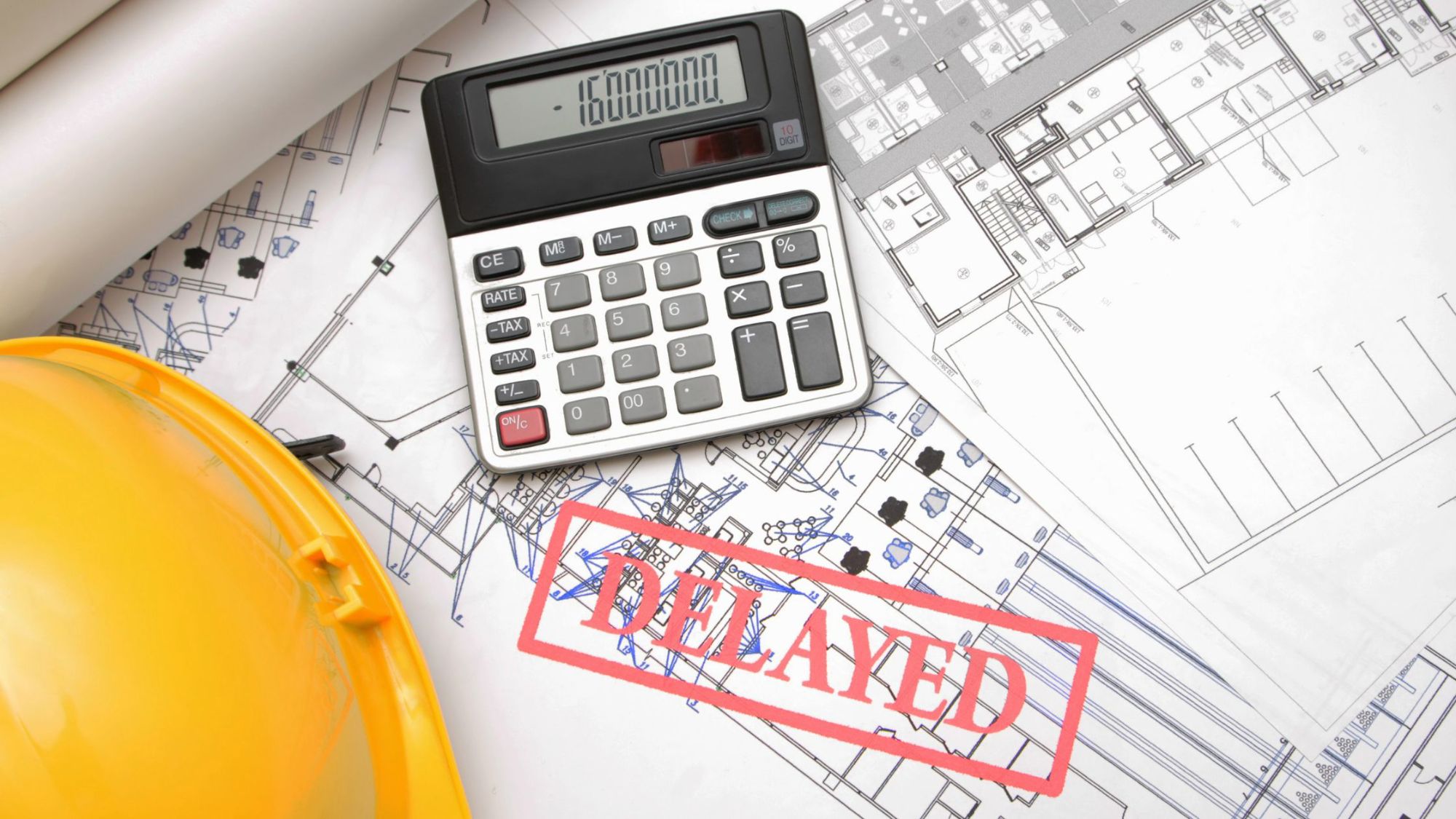Home Closing Delays: Causes, Consequences, and, How to Avoid Them
Home Closing Delays: What They Are, Why They Happen, and How to Avoid Them
You’ve found the perfect home, negotiated the terms, and signed the purchase agreement. Everything seems to be falling into place—until it isn’t. Suddenly, your expected closing day comes and goes without a set of keys in hand. If this sounds familiar, you’re not alone. Home closing delays are a common yet incredibly frustrating part of the real estate journey that can derail even the most well-prepared transactions.
Buying or selling a home is one of the largest financial decisions most people will ever make, and with so many moving parts—lenders, appraisers, inspectors, title companies, attorneys, and more—it’s no surprise that timelines can shift. But when the closing date is delayed, it can trigger a domino effect: increased costs, disrupted moving plans, lost rate locks, dual housing expenses, and a rollercoaster of stress for everyone involved.

This comprehensive guide will walk you through the most common causes of real estate closing delays, the potential consequences of a delayed home closing, and—most importantly—how to avoid them. Whether you’re a buyer anxious to move in, a seller coordinating your next move, or a real estate professional looking to stay ahead of potential pitfalls, this article is packed with valuable insights, actionable strategies, and expert tips to help you navigate the closing process smoothly.
Let’s dive in and explore what really causes home closing delays, what happens if your home closing is delayed, and the steps you can take to keep your real estate transaction on track.
What Does It Mean When a Home Closing Is Delayed?
The closing date is the day legal ownership of a home transfers from the seller to the buyer. It’s when funds are exchanged, keys are handed over, and paperwork becomes legally binding. A delayed home closing occurs when that final step is pushed back beyond the agreed-upon timeline in the purchase agreement.
Closings are typically scheduled 30–60 days after an offer is accepted, but they don’t always go according to plan. And when they don’t, both parties are at risk of financial burdens, stress, and logistical disruptions.
What Causes Home Closing Delays?
There’s no one-size-fits-all answer, but here are the most common reasons:
1. Financing & Mortgage Closing Delays
The #1 cause of closing delays is buyer financing problems. Even if a buyer has pre-approval, final mortgage underwriting can reveal red flags.
Common financing issues include:
-
A sudden drop in credit score or increase in debt-to-income ratio
-
Job loss or change in employment
-
Missed paperwork like the loan estimate, promissory note, or mortgage note
-
A missed rate lock causing interest rate changes
-
Lender requiring additional documents at the last minute
2. Title Issues and Vesting Deed Errors
A title search uncovers any legal claims, liens, or easements that affect the property’s ownership. If there’s a problem—say, an unpaid tax lien or a clerical error in the vesting deed—the closing must be paused.
Common title-related delays:
-
Undisclosed liens or judgments
-
Inherited property disputes
-
Ownership discrepancies
-
Boundary encroachments
3. Low Appraisal Value
When a home is appraised for less than the agreed-upon sale price, lenders often won’t approve the full loan amount.
Buyers are then forced to:
-
Pay the difference out-of-pocket
-
Renegotiate the price
-
Cancel the deal (triggering contingency failures)
Delays may also happen when the appraisal is scheduled too late or needs to be redone.
4. Inspection Issues and Final Walkthrough Surprises
Inspections can reveal major repairs, like a cracked foundation, mold, or roof damage. If buyer and seller can't agree on repair terms—or the seller doesn’t finish the work on time—it can trigger last-minute inspection issues.
Even if the inspection goes smoothly, a final walkthrough may reveal:
-
Items removed that were meant to stay
-
New damage to walls, floors, or fixtures
-
Trash or debris left behind
5. Documentation Delays and Paperwork Errors
Real estate closings require a mountain of documents. Just one missing signature or outdated form can hold things up.
Key documents that can cause issues include:
-
Closing disclosure
-
Deed of trust
-
Closing date extension addendum
-
HOA documents
-
Escrow disclosures
6. Contingency Failures
Most contracts include contingencies to protect buyers and sellers:
-
Financing
-
Appraisal
-
Home sale
-
Inspection
If one of these falls through and the issue isn't resolved quickly, closing is delayed—or canceled altogether.
7. Closing Costs or Missing Earnest Money
If the buyer lacks the cash needed to cover closing costs or fails to wire funds on time, the entire process grinds to a halt.
Also at risk: the buyer’s earnest money deposit—a loss here can be a serious blow if the delay is deemed a breach of contract.
8. HOA and Condo Association Delays
For homes in a homeowners association (HOA) or condo, additional documentation and approvals are required. Delays often stem from:
-
Late delivery of HOA documents
-
Missing resale certificates
-
Transfer fees or disputes with the board
9. Poor Coordination Between Parties
Sometimes, delays come down to simple scheduling conflicts or poor communication between:
-
Buyer & seller
-
Real estate agents
-
Title company
-
Lender
-
Escrow officer
-
Appraiser
-
Inspector
A knowledgeable agent can coordinate efforts and keep everyone on track—especially when multiple third parties are involved.

Consequences of a Delayed Home Closing
Delayed closings are more than just inconvenient—they can be financially and emotionally taxing.
💸 Financial Impact:
-
Loss of mortgage rate lock
-
Extended housing costs (rent, mortgage, storage)
-
Increased moving expenses
-
Risk of losing earnest money
-
Paying more due to rising interest rates
🧠 Emotional & Logistical Stress:
-
Disrupted moving plans
-
Missed school start dates or job changes
-
Frustration and anxiety for all involved
-
Potential for legal disputes
🤝 Deal Fallout:
-
Seller may move on to another buyer
-
Buyer may back out if contingencies are unmet
-
Contract may need a closing date extension addendum
How to Avoid Real Estate Closing Delays

While not all delays are preventable, many can be mitigated with proper planning and communication.
✔️ 1. Get Pre-Approved Early
Not just pre-qualified—fully underwritten pre-approval gives you a head start and flags potential red flags early.
✔️ 2. Stay Financially Stable
Avoid new debt, job changes, or large purchases before closing. Keep credit scores steady and debt-to-income ratio in check.
✔️ 3. Choose a Knowledgeable Agent
An experienced agent can:
-
Spot contract issues before they snowball
-
Coordinate with the title company, lender, and other parties
-
Provide early warnings of any legal disputes or inspection concerns
✔️ 4. Communicate Clearly
Prompt communication between all parties is essential. Ensure everyone knows key deadlines and deliverables.
✔️ 5. Review Documents Thoroughly
Check all documents, from the purchase agreement to the closing disclosure, for accuracy and completeness.
✔️ 6. Address Inspection Issues Early
Negotiate repairs immediately. Use licensed contractors and set deadlines well in advance of the closing date.
✔️ 7. Understand Your Contingencies
Know your rights and responsibilities. Clarify who handles what if contingencies aren’t met.
✔️ 8. Plan for the Unexpected
Have backup plans: flexible move-in dates, extra cash reserves, or temporary housing if needed.
What to Do If Your Closing Is Delayed
If your home closing is delayed, don’t panic. There are steps to move things forward without losing your deal.
Step 1: Identify the Cause
Work with your agent or attorney to understand why the delay occurred and who is responsible.
Step 2: Communicate With All Parties
Loop in the buyer/seller, lender, escrow officer, and title company to create a resolution plan.
Step 3: Sign an Extension
Use a closing date extension addendum or extension of agreement to legally extend the timeline.
Step 4: Keep Documentation
Maintain a paper trail in case of disputes or if you need to pursue legal recourse.
Final Thoughts on Home Closing Delays
While real estate closing delays are common, most are preventable with the right team, communication, and preparation. From title defects to low appraisals, knowing what to expect—and how to respond—can make your transaction as smooth as possible.
Working with a trusted, experienced agent is one of the best ways to avoid pitfalls, stay informed, and get the keys to your new home on time.
Sign up for my monthly newsletter to receive expert advice, important local updates, and insider knowledge on the best ways to thrive in this unique region. Whether you're buying, selling, or simply curious about life in the Pacific Northwest, I've got you covered.
👉 Join my newsletter today and never miss a beat! Just enter your email below and get exclusive access to all things Southwest Washington. Let’s stay connected!
Frequently Asked Questions
Is it normal for a closing date to be delayed?
Yes, it’s fairly common. Delays can happen due to financing issues, appraisal problems, title concerns, or document errors.
Why is it taking so long to close on my house?
Common reasons include slow underwriting, appraisal delays, title or inspection issues, or missing paperwork from either party.
What is the longest a closing can take?
While most closings happen within 30 to 60 days, some can extend longer—especially if financing or legal complications arise.
Can closing take less than 30 days?
Yes. With a cash buyer or a well-prepared loan file, closing can happen in as little as 7 to 21 days.
Can a seller back out if closing is delayed?
Only under specific contract terms. Most real estate contracts allow for reasonable delays, but if the buyer defaults without cause, the seller may have grounds to cancel.
What happens if the buyer does not complete on time?
They may risk losing their earnest money deposit or be considered in breach of contract, depending on the terms of the agreement.
Can I sue my lender for not closing on time?
Possibly, but only if there's a clear breach of contract or provable negligence. Often, delays are covered under contingency clauses.
What if the closing date is not met?
Both parties can usually agree to extend. If not, penalties may apply, or the deal could fall apart depending on the contract terms.
What is the average timeline for closing on a house?
Typically, it takes 30 to 45 days from the time the offer is accepted to the final closing.
Why is my underwriter taking so long?
Underwriters review every aspect of the loan file—including income, credit, appraisal, and documentation. Delays can happen if more verification or documentation is needed.
Categories
Recent Posts










GET MORE INFORMATION

Cassandra Marks
Realtor, Licensed in OR & WA | License ID: 201225764
Realtor, Licensed in OR & WA License ID: 201225764
